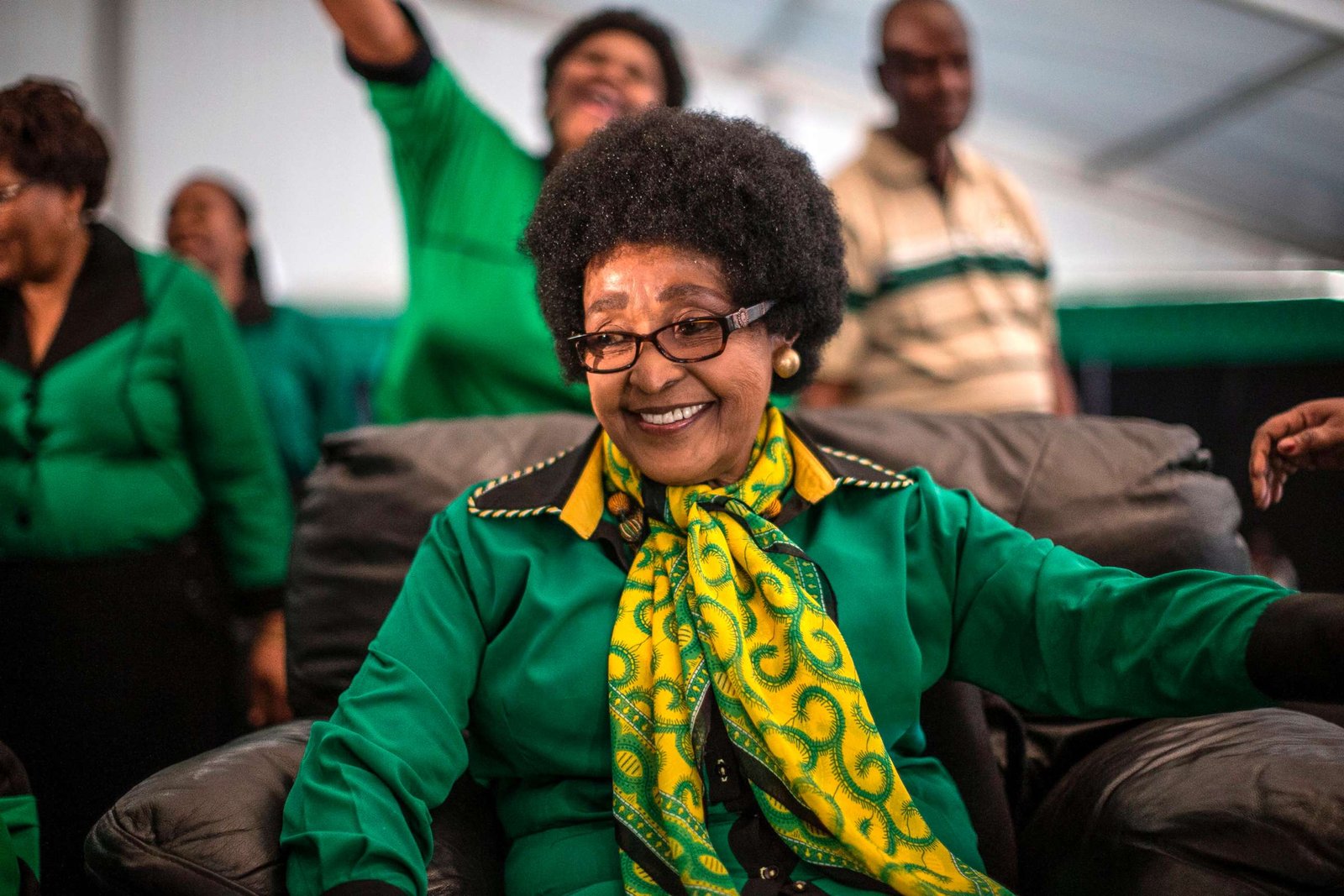Winnie Madikizela-Mandela (1936–2018) was a prominent South African anti-apartheid activist and political figure, widely acknowledged for her unwavering dedication to the pursuit of freedom and equality. Born on September 26, 1936, in Bizana, Pondoland (now part of the Eastern Cape Province), South Africa, she grew up amidst the harsh realities of apartheid, which deeply influenced her activism.
Her journey into activism commenced during the 1950s when she became involved with the African National Congress (ANC) Youth League. In 1958, she married Nelson Mandela, subsequently becoming known as Winnie Mandela. However, her husband’s arrest and imprisonment in 1962 propelled her into a more prominent role within the anti-apartheid movement, despite facing persecution, including arrests, harassment, and restrictions on her public engagements.
During Nelson Mandela’s imprisonment, Winnie became a symbol of resistance, inspiring countless individuals with her steadfast commitment to the cause. Nevertheless, her association with the Mandela United Football Club, a group implicated in violence during the late 1980s, attracted controversy and allegations.
The end of apartheid and Nelson Mandela’s release in 1990 marked a pivotal moment in South African history. Despite their separation in 1992 and subsequent divorce in 1996, Winnie continued her active involvement in politics, serving as a Member of Parliament and holding various positions within the ANC.
Winnie Mandela’s legacy is characterised by her resilience, courage, and significant contributions to the anti-apartheid struggle. While celebrated for her unwavering pursuit of justice, she also faced criticism and scrutiny for the controversies surrounding her. Her life serves as a testament to the sacrifices made by numerous individuals in the fight against apartheid.
Winnie Madikizela-Mandela passed away on April 2, 2018, leaving behind a complex legacy that continues to be the subject of discussion and analysis. Her profound impact on South African history remains undeniable, as she played a pivotal role in shaping the nation’s trajectory towards democracy and equality.










